"Australia" didn't consider it. It was a conservative opposition party in one state that pushed the bill, and it was ultimately defeated.
(Vivaldi is closed source, so it’s harder for users to investigate).
Please show me where you explained that Vivaldi's source code is harder to investigate because "users need to download a 2 GB repo" or a "tarball dump".
Is English your first language? Do you understand the definition of "so" in the sentence you typed?
This was a pretty underwhelming article. Most of it is a pretty uninteresting story about how the site was founded, which isn't really relevant to the headline.
But that's not what you claimed. Direct quote from the article (bold emphasis is mine):
Vivaldi users point out that the built in blocker is noticably worse than uBlock Origin, with some guessing that Vivaldi doesn’t fully support uBlock Origin filterlists (Vivaldi is closed source, so it’s harder for users to investigate).
You clearly implied that the reason Vivaldi's source code regarding ad-blocking is harder for users to investigate is because it's closed source. This is not true.
This article has some misinformation in places. Like it claims Vivaldi's ad-blocker cannot be investigated further because the project is closed source, but the only closed source part of Vivaldi is the UI (approximately 5% of the total code). The ad-blocker C++ code is published along with the other 95% of the browser's code.
*zoomer
Sounds like the SA Liberals are providing free campaign material for Labor to destroy them with in the next election. As if they even needed it, the Libs are a complete mess.
Resolution doesn't mean much, those sites you are referring to use extremely low bitrate encodes that look terrible. Yes, streaming services (in my experience Netflix is the main offender) can sometimes deliver dogshit quality streams too due to their adaptive bit rates, but the ceiling is way higher than those sites that pull from DDL file hosters. If you are consistently suffering from very low quality paid streams then you likely have some kind of network issue affecting the adaptive bitrate.
Most streaming services have introduced cheaper "ad-supported" tiers within the last few years while jacking up the prices of the existing tiers. There is usually a price gap designed to either make you sit through ads or overpay to remove them. Many (most?) people don't even use ad-blockers in their web browsers and are psychologically trained to sit through ad breaks, either because of TV (older generation) or YouTube (younger generation) which is why these streaming companies can get away with such a betrayal of their original premise.
Ranked is solo queue only, so you wouldn't be able to play with those 5 friends anyway.
Why? Why not?
I don't care about the ranks themselves, but I am tempted to give it a go and see if it results in better matchmaking than standard play.
Do you have a Google account you are signed in to?
Last month one of his sons, Ned, said his father was in an aged care facility and was mostly “non-verbal”.
“For those of you who don’t know, my dad was diagnosed with Alzheimer’s around five years ago,” Ned wrote. “He’s now non verbal most of the time (mind-blowing for me but also any of you that know him).”
Very sad way to go out for both himself and his family and friends. I'll always remember the days watching George Negus Tonight as a youngster, not really understanding what any of it was about. It used to come on after the kids shows finished so I usually watched a bit of it before dinner.
The spirit orbs are sort of like an aim trainer mini-game. They get you to constantly practice short flicks throughout a match, it's very satisfying.
These stories always make me so sad because the mistreatment of people on working holiday visas has been a widespread problem for such a long time and yet there is seemingly little desire for a solution.
Was your username supposed to be CaptOblivious but you made a typo?
It has way more than "a few thousand active players". The 24 hour peak is over 92,000. Deadlock is a big game at the moment, even if it's in alpha testing.
Comedy trailers are never funny so I'm not sure you can judge its quality based on this. Like a lot of comedy is situational within an episode and based on minutes worth of build up for a big payoff. But obviously you can't show any of that in a conventional trailer so it will just be the one-liners which are always the worst bit of a comedy show and basically added to the script as trailer filler.
Having said all that, I'm not a fan of The Office or regional reboots so I'll definitely pass.
I hate it.
Good luck! Hope everything goes smoothly off the back of your injury. I have a 10 km race next month too, not looking forward to it with my current fitness levels + the knowledge that I always struggle in warmer weather.
This update seems to have introduced performance issues for some players. I was getting really bad hitching today and other players in my games were reporting the same.
He was elected promising a new style off government, but his difficulty in countering Peter Dutton’s right-wing populism has left Albanese floundering.

Just curious what the demographic here is like. The game seems to be appealing, at least for now, to both crowds. I am an FPS player whereas my friend is a ex-MOBA player and we usually struggle to find games we can enjoy equally. So far we are playing Deadlock a lot together though, and I am more hooked than I expected to be when I first realised this was primarily a MOBA.
If you started playing this game for a different reason feel free to share as well.
State’s new curricula for years 7 to 10 released as part of the shift to explicit teaching

This sounds like a positive change, definitely a much better grounding in Australian history than I received at that age. It is pretty wild that you can live in a colonial country without ever being taught what colonisation means for indigenous peoples but that is the world we've been living in until recently.
The Coalition scare campaign says the next election will deliver a Labor minority government — propped up by an unholy alliance of Greens and teal independents — and that it will be chaos. But does that stack up?
You need to only look at the modern crossbench, and the teals in particular, to see the prospect of a 2010 repeat is unlikely.
These modern independents aren't former Nationals blokes who have turned their back on their party.
They're modern women who couldn't see themselves in the party that once took their seats for granted.
"While the 2022 election might be heralded as a ‘breakthrough’ for the independents, the conditions for their election have been building over several decade," the Australian Election Study noted in 2022.
"Many of these changes are associated with voters being ‘less rusted on’ to the major political parties and becoming more independently minded in their political choices."
That's the problem with scare campaigns like the Coalition's. When you threaten voters with a minority government, that would require crossbench negotiations, some in the seats you're trying to win might be left thinking: "Oh, that sounds more preferable than you."
This is not the first time we’ve seen powerful celebrity stories about cancer have the potential to influence public health. Here’s how you can make sense of the latest news.

Interesting article in relation to the media pile-on of Elle Macpherson earlier this week. According to the authors, her decision to avoid chemotherapy may have been completely normal and sensible given her circumstances. We don't actually know because no one from the ABC or any other outlet bothered to check before running their stories citing her former relationship with an anti-vaxxer, or claiming that she ignored centuries of medical advice. The authors conclude that Australians have missed a great opportunity here to discuss the current state of non-invasive breast cancer research and treatment.
YouTube Video
Click to view this content.
Labor has moved to dump proposed questions that would create the first estimate of Australia's LGBTQIA+ population, with advocates saying it renders the community "invisible".
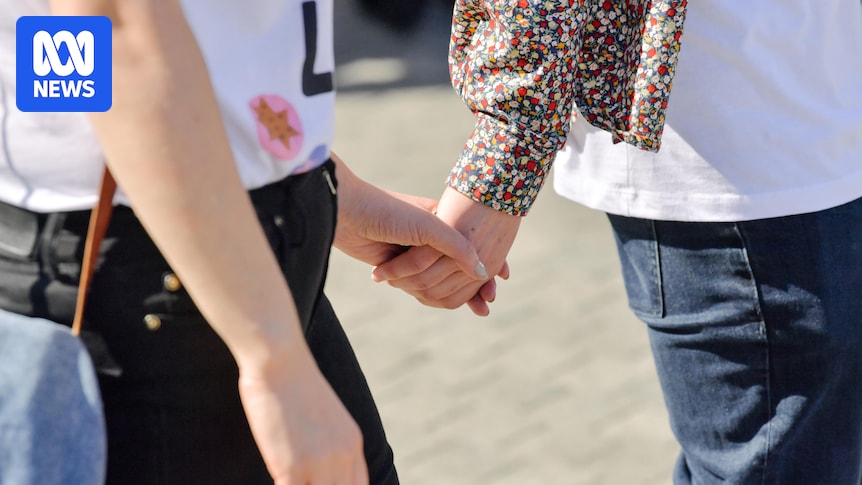
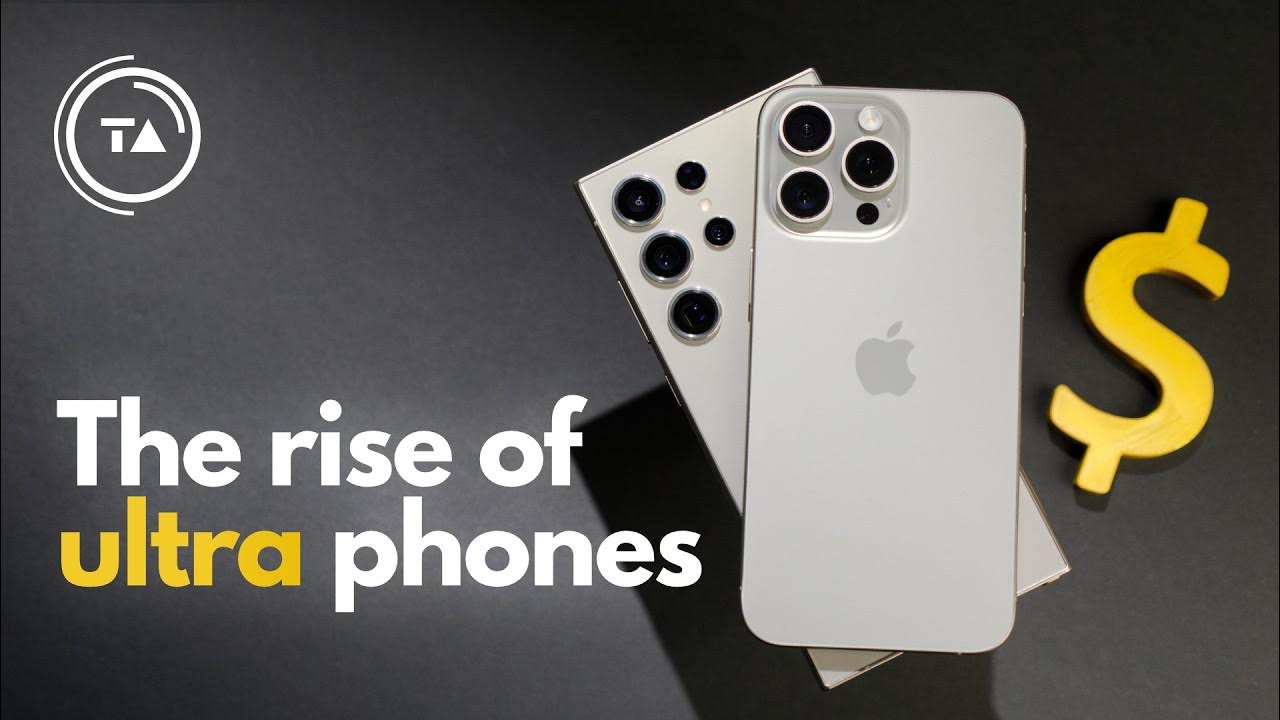
YouTube Video
Click to view this content.
Interesting video, particularly the statistics around where the majority of the market is in Western countries. If you buy a base S24 in Germany, you are actually spending less money on your phone than over 70% of the country, for example. The ultra high end market absolutely dominates despite seemingly everyone complaining about how expensive phones are these days.
The video doesn't really answer the question, though. It sort of implies that it's because we are keeping smartphones for longer and because they are becoming increasingly important parts of our lives as our screen time also increases. Manufacturers are also able to bait consumers into buying these crazy expensive phones with trade-in and bundle deals (throwing in "discounted" watches and TWS earbuds, for example).
Appointing a new managing director offers the opportunity to reset the organisation’s editorial culture by facing down the relentless attacks on its journalists from right-wing political interests.

Early expectations for generative AI are deflating – but realistic applications are beginning to emerge.
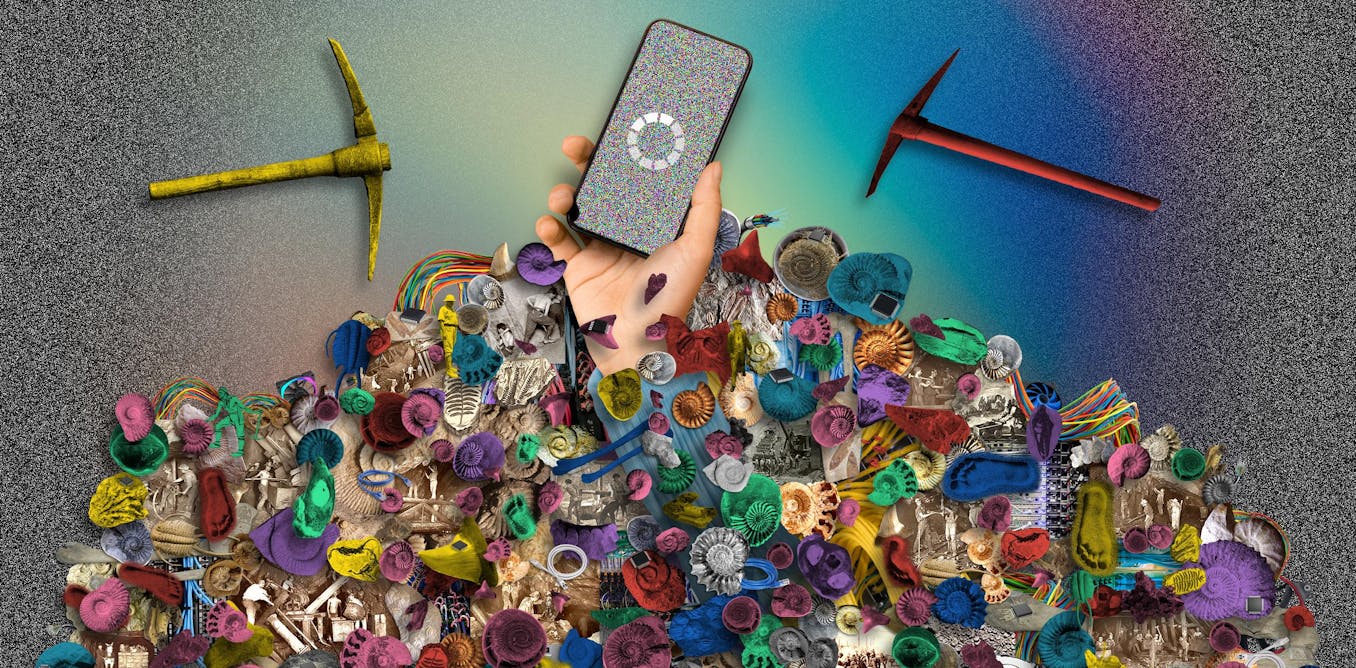
There are fears that sacred, pristine sites are being put at risk by a government-backed push to grow cotton in the outback.

This is the written article of the latest Four Corners episode.
People around the former and would-be president see a candidate knocked off his bearings, disoriented by his new contest with Kamala Harris and unsure of how to take her on.
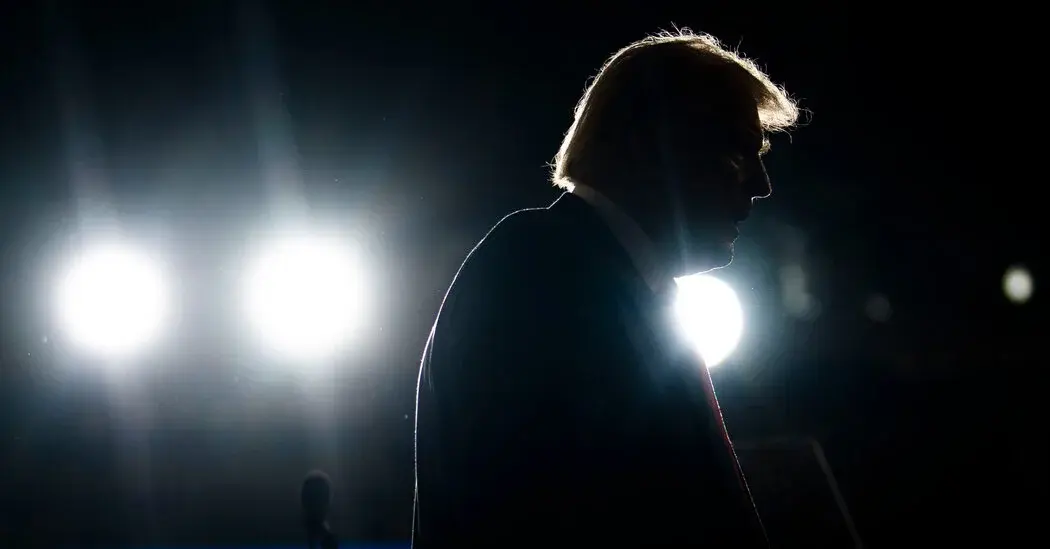
Facebook itself is paying creators in India, Vietnam, and the Philippines for bizarre AI spam that they are learning to make from YouTube influencers and guides sold on Telegram.

NITV and SBS will provide unparalleled access to the agenda-setting dialogue and the celebration of the cultural, artistic and ceremonial traditions of the Yolŋu people, across the four-day event.

No Coalition representative is listed to attend this year's festival of Yolngu culture and Indigenous politics, traditionally a bipartisan affair.

While there have been moves to making voting optional in Australia, voters have consistently expressed their support for it being compulsory.

Author: Paul Strangio, Emeritus Professor of Politics, Monash University
For nearly 200 years, the notion of American political exceptionalism has had currency in the United States: it is an idea rooted in the nation’s status as the first modern republic. As we watch from afar, disturbed yet mesmerised by the latest chapter of violent political division in America, the country seems less a paragon than a symbol of democratic pathology.
America’s certainty in its political uniqueness is symptomatic of a brash national chauvinism. By way of contrast, Australia is prone, if anything, to undue bashfulness about its democratic credentials. How else can we explain that this month marks the centenary of the most extraordinary feature of the country’s democratic architecture, and yet the anniversary is slipping by with neither comment nor reflection. I refer to compulsory voting, which was legislated in the federal parliament in July 1924.
Compulsory voting is not unique to Australia. Calculating how many countries abide by the practice is notoriously difficult, since in around half the nations where compulsory voting exists in name it is not enforced. Most estimates, however, put the figure in the vicinity of 20 to 30.
If not unique, Australia’s experience of compulsory voting is highly distinctive for a number of reasons.
First, its emergence in the early 20th century was consistent with the nation’s larger tradition of innovation and experimentation when it came to electoral institutions and practices. This record is typically traced back to the pioneering in the 1850s of the secret ballot (sometimes called the “Australian ballot”) in a number of the Australian colonies and the embrace of other advanced democratic measures in the second half of the 19th century.
These included manhood suffrage, payment of MPs and the extension of the franchise to women, beginning in South Australia in 1894. The innovations continued in the 20th century with such things as preferential voting and non-partisan bureaucratic electoral administration.
Second, Australia is alone in embracing compulsory voting among the Anglophone democracies to which it typically compares itself. The electoral systems of Britain, Canada, New Zealand and the United States are all based on voluntary voting.
Third, unlike many other compulsory voting countries, Australia does not pay lip service to its operation. Electoral authorities enforce compulsory voting, albeit leniently. It has been strongly upheld by the courts and is backed by a regime of sanctions for non-compliance.
Fourth, compulsory voting has been consistently and unambiguously successful in achieving high voter turnout. Though there has been a slight downward trend in turnout at the past five national elections (it hit a low of 90.5% in 2022), it has not fallen below 90% since the adoption of compulsory voting a century ago.
This is around 30% higher than the recent average turnout in countries with voluntary voting. It is also well above the recent average in countries with compulsory voting systems.
Fifth, the public has strongly and consistently backed the practice. Evidence from more than half a century of opinion polls and election study surveys shows support hovering around the 70% mark.
An impregnable practice
Perhaps the most singular aspect of the nation’s experience of compulsory voting, however, is how seemingly impregnable is the practice if measured by its durability, the dearth of controversy over it, the consistency of its enforcement by authorities and the way citizens have dutifully complied with and supported it. Together these things make Australia an exemplar of compulsory voting internationally.
This is not to say compulsory voting has been a sacred cow in Australia. In the final decades of the 20th century and first decade of this century, there was a concerted push to end the practice emanating principally from within the Liberal Party.
The torchbearer of the agitation for voluntary voting was the avowed libertarian South Australian senator, Nick Minchin. For Minchin, compulsory voting was anathema:
> […] in relation to the most important single manifestation of democratic will, the act of voting, I profoundly detest Australia’s denial of individual choice. It seems to me that an essential part of a liberal democracy should be the citizen’s legal right to decide whether or not to vote. The denial of that right is an affront to democracy.
Minchin had a number of like-minded supporters of voluntary voting in the Liberal Party. Among them, importantly, was John Howard, whose prime ministership coincided with the mobilisation to abolish compulsory voting.
Howard had been on record as an opponent of the practice since his entry to the federal parliament in 1974. The Liberal Party campaign against compulsory voting manifested in, among other things:
- the party’s federal council resolving in favour of voluntary voting
- shadow cabinet endorsing a recommendation for a change of policy to voluntary voting being placed before the joint Liberal-National party parliamentary room
- the introduction in the South Australian parliament of two bills to repeal compulsory voting by successive Liberal state governments
- Coalition members of the Joint Standing Committee on Electoral Matters repeatedly recommending the abolition of the practice.
In the end, these agitations achieved nought. The most fundamental reason was that the opponents of compulsory voting failed to generate community resentment towards the system. Howard, while restating his preference for voluntary voting, admitted as much in 2005 when shutting down debate on the issue in his government:
> As I move around the country, I don’t get people stopping me in the street and saying, “You’ve got to get rid of compulsory voting.”
Indeed, election survey data suggests the Liberal campaign coincided with a firming of public support for compulsory voting. In the two decades since, opposition has been dormant. For the foreseeable future, Australia’s compulsory voting regime is secure.
An Australian democratic exceptionalism?
As noted above, compulsory voting has kept voter turnout at elections above 90% for the past century. Kindred democracies marvel at, and envy, this level of participation. It affords legitimacy to election outcomes in this country. Significantly, it also produces a socially even turnout.
Compare this to the situation in this month’s United Kingdom election. Turnout is estimated to have slumped to a record low 52%. There was a clear pattern of the “haves” exercising much greater say at the ballot box than the “have nots”. Those who stayed away from the polls were predominantly less well-off, non-homeowners, the young, the lower-educated and of minority ethnic background.
Australia cannot be complacent in this regard. Low and declining turnout in remote electorates with high Indigenous populations is the most worrying chink in the performance of compulsory voting. In 2022, turnout in the Northern Territory seat of Lingiari fell to 66.8%. Even so, the practice largely succeeds in achieving inclusive voter participation across the country.
Crucially, compulsory voting is also recognised as one reason the political centre holds better in Australia than in many comparable nations. It exercises a moderating influence because it ensures it is not only impassioned partisans at either end of the political spectrum who participate in elections. This in turn means they are not the chief focus of governments and political parties.
Under a compulsory voting system, middle-of-the-road citizens and their concerns and sensibilities count. This inhibits the trend towards polarisation and grievance politics evident in other parts of the globe. It helps explain why Australia has been less receptive to the aggressive conservative populism that has taken root in the United States and Europe.
Compulsory voting also goes hand in hand with other institutional bulwarks of the nation’s democracy. While there is plenty of evidence in Australia of increasing disaffection with politics, one thing that helps bolster faith in the democratic system is the politically independent national electoral authority, the Australian Electoral Commission.
The AEC’s trusted impartial administration of the electoral system lends integrity to the democratic process. So do the many procedures it manages to facilitate voting. To name a few: Saturday election days, assistance for the ill, aged and those from non-English-speaking backgrounds, mobile polling stations, postal, absentee and early voting, and active and regular updating of registration.
Indeed, Australia has been described as “the most voter-friendly country in the world”. Compulsory voting encourages this accessibility: if citizens are obliged to vote, then it becomes incumbent to smooth the path to them participating. The ease of voting in Australia contrasts with what goes on elsewhere, for example, the rampant state-based voter-suppression practices in the United States.
Dare we suggest, then, that compulsory voting is a mainstay of an Australian democratic exceptionalism? That we little note, let alone extol, the practice is perhaps not only a product of an inherent national modesty but because it is second nature after 100 years. Habituated to being compelled to participate in elections, we are inured to its specialness.
Let’s hope this casual familiarity does not induce apathy rather than vigilance when next the system is challenged.

YouTube Video
Click to view this content.
Former prime minister Kevin Rudd has demanded Jack Black 'grow up and get a decent job', following calls from a supposed 'free speech' senator. Politics in 2024 is quite something.
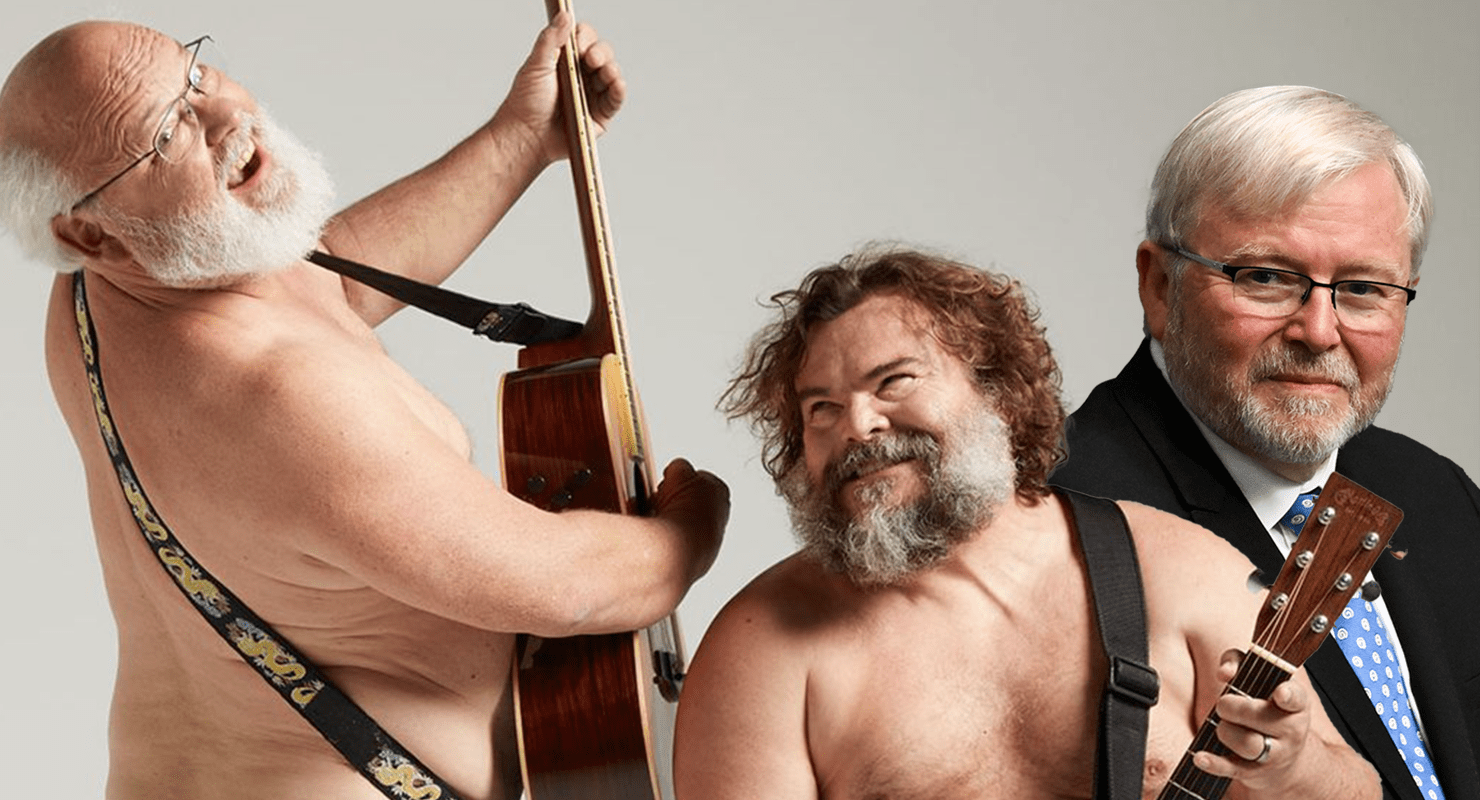
The joke was dumb, the online reaction to the joke was dumb, a random UAP senator's dumb comments being quoted globally was dumb and Rudd telling famous musicians and actors to "grow up and get a job" was very dumb. What a time we live in.
